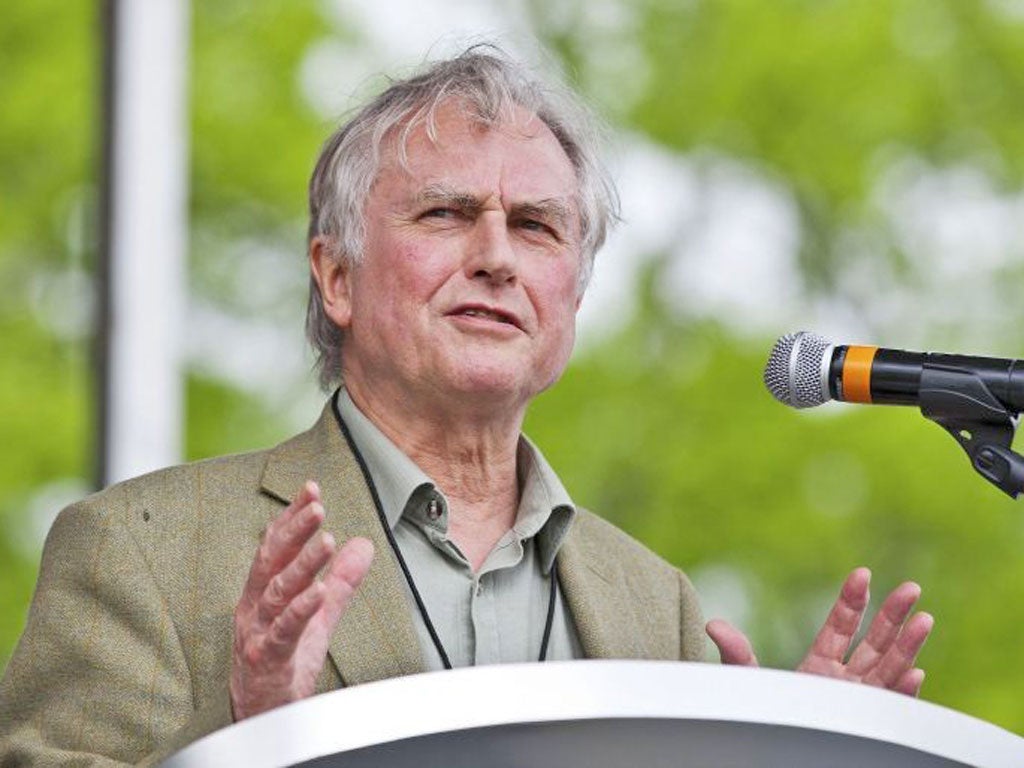Richard Dawkins offers half apology over those Down syndrome comments: 'Half the problem lies in a wanton eagerness to misunderstand'
The scientist attempts to clarify his “contentious” views in a statement

Your support helps us to tell the story
From reproductive rights to climate change to Big Tech, The Independent is on the ground when the story is developing. Whether it's investigating the financials of Elon Musk's pro-Trump PAC or producing our latest documentary, 'The A Word', which shines a light on the American women fighting for reproductive rights, we know how important it is to parse out the facts from the messaging.
At such a critical moment in US history, we need reporters on the ground. Your donation allows us to keep sending journalists to speak to both sides of the story.
The Independent is trusted by Americans across the entire political spectrum. And unlike many other quality news outlets, we choose not to lock Americans out of our reporting and analysis with paywalls. We believe quality journalism should be available to everyone, paid for by those who can afford it.
Your support makes all the difference.Richard Dawkins has addressed the “feeding frenzy” that arose after he said that it was “immoral” to give birth to a baby with Down syndrome if the mother was aware of the child’s condition.
Responding to a “real ethical dilemma” of one his Twitter users, who said she wouldn’t know what to do if she “were pregnant with a kid with Down syndrome”, Dawkins offered his controversial view.
“Abort it and try again,” he tweeted. “It would be immoral to bring it into the world if you have the choice.”
Unsurprisingly, his comments provoked “hate tweets” and the scientist has since published an apology of sorts, in which he is very sorry if he offended anyone with his “logical” opinion.
It wasn’t his view that was wrong, he says, more the public’s “wanton eagerness to misunderstand”.
"What I was saying simply follows logically from the ordinary pro-choice stance that most us, I presume, espouse,” he wrote. “My phraseology may have been tactlessly vulnerable to misunderstanding, but I can’t help feeling that at least half the problem lies in a wanton eagerness to misunderstand.”
The lengthy tome begins with a definition of Down syndrome, helpfully pointing out that parents who have a child with the genetic condition “usually” grow to form attachments to their son or daughter.
“Parents who care for their children with Down Syndrome usually form strong bonds of affection with them, as they would with any child,” he said. “These feelings are sincere and mutual, and probably account for some of the hate tweets I have been experiencing.”
He goes onto say that “most doctors recommend” abortion when Down Syndrome is detected – although offers no statistics to support the statement – before clarifying that his tweets were meant as private messages, rather than public.
The limited 140 characters meant he was unable to offer his full take on the issue, which he rectifies in a lengthier format. While he wouldn’t “dream of imposing my views on you”, he reiterates the same sentiment – that the “moral and sensible” choice is to abort a child with the condition.
“For what it’s worth, my own choice would be to abort the Down fetus and, assuming you want a baby at all, try again,” he wrote. “Given a free choice of having an early abortion or deliberately bringing a Down child into the world, I think the moral and sensible choice would be to abort. And, indeed, that is what the great majority of women, in America and especially in Europe, actually do.
“I personally would go further and say that, if your morality is based, as mine is, on a desire to increase the sum of happiness and reduce suffering, the decision to deliberately give birth to a Down baby, when you have the choice to abort it early in the pregnancy, might actually be immoral from the point of view of the child’s own welfare.”
He then attempts to break down the reasons as to why anyone could have possibly been offended by his views.
The “haters”, as he describes, comprise: those whom are categorically against abortion; those who thought he was dictating to women how to act; those who thought he was “advocating a mob rule”; those who believe he was supporting a “eugenic policy” and, finally, those who raised an “emotional point” because they know and love a person with Down syndrome.
“I have sympathy for this emotional point, but it is an emotional one not a logical one,” he wrote in defence. “It is one of a common family of errors, one that frequently arises in the abortion debate.”
He also name checks two of his works.
The long and short of it is, those who disagree or have been offended have simply been confused by his “tactlessly vulnerable to misunderstanding” comments.
Join our commenting forum
Join thought-provoking conversations, follow other Independent readers and see their replies
Comments